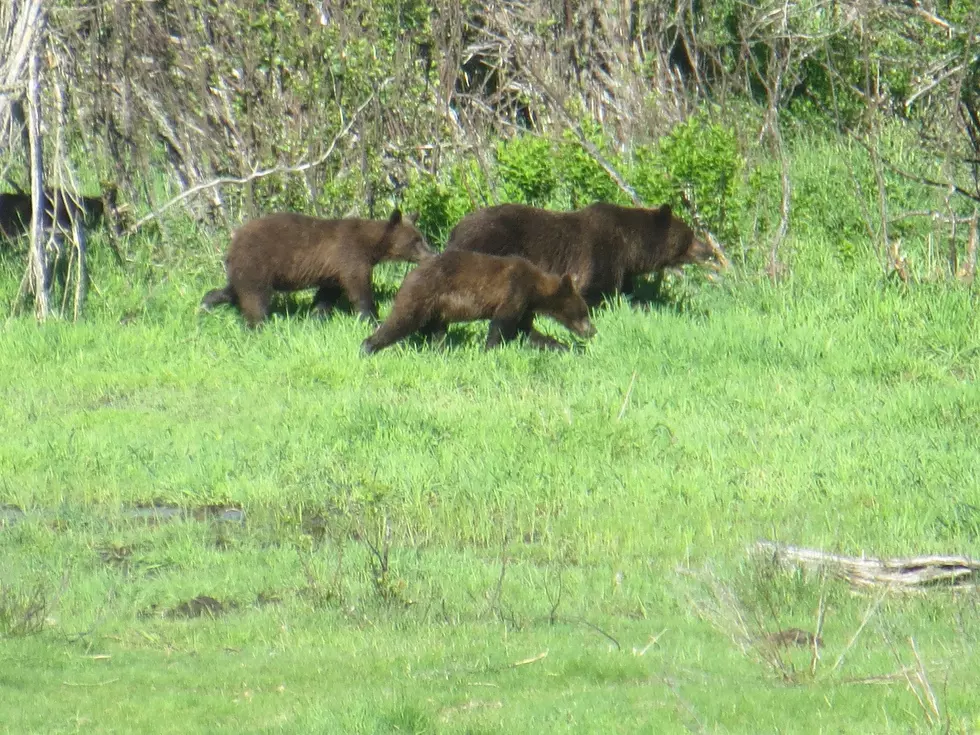
Viewpoint: It’s time to live in harmony with grizzly bears
Lizzy Pennock and James Holt
Grizzly bears are slowly reclaiming parts of their historic range for the first time since European settlers nearly eradicated them from the lower-48. And with bear expansion comes great responsibility.
We must act as stewards and guardians for bears, especially in places with vast wilderness like Idaho and Montana where the grizzly bear can still roam. We know human actions, activities, and attitudes are often the reason why otherwise avoidable grizzly bear deaths occur. So, it’s up to us to adapt and cultivate harmony between ourselves and bears.
States in grizzly bear country play a major role in fostering this harmony. We are very alarmed by the number of grizzly bears shot and killed by hunters who mistook them for black bears, including one in Idaho’s Panhandle, this summer.
States that allow black bear hunting in areas where grizzlies roam—or might roam—must ensure black bear hunters are equipped to correctly identify the bear in their gunsight. But unlike Montana, Wyoming and Idaho do not require that black bear hunters take any sort of identification test. We and other conservation groups have asked the agencies responsible for stewarding wildlife in these states to require hunter education to reduce bear misidentification.
But above all, our movement towards coexistence comes from within. As enrolled members of the Nez Perce tribe, we, Julian Matthews and James Holt, feel a personal responsibility to ensure that the grizzly is protected from wanton and unwarranted deaths. Our tribe and its members have deep cultural ties to grizzly bears, as we have lived alongside them for millennia; our ancestral homelands and usual and accustomed places span much of Idaho and Montana, places the grizzly bear has long inhabited. As the Nimiipuu (Nez Perce) have lived here many generations in harmony with grizzly bears, we believe it is critical to ensure that all of us learn and aspire to live in harmony with grizzly bears. We want to make sure that grizzly bears are protected from mistaken or intentional killing by hunters or others, and that they can safely move throughout their habitats and into new areas.
The Nimiipuu set an example to which we can all aspire, showing us that we can live alongside grizzly bears in harmony through respectful coexistence, primarily achieved through the minimization of human-bear conflicts. Regardless of whether conflicts arise from hunter misidentification, unsecured garbage, or unprotected livestock, we have the tools and knowledge to successfully reduce and even prevent these tragic, senseless deaths.
As we strive to achieve the kind of harmony the Nimiipuu cultivated for thousands of years, we must look past the hateful and divisive rhetoric coming from politicians and special interest groups that would prefer to send grizzlies back to the brink of total eradication. It is up to all of us to be the voice for harmony, respect, and coexistence between humans and grizzlies.
Julian Matthews is an enrolled member of the Nez Perce Tribe based in Lapwai, Idaho, and is a co-founder of Nimiipuu Protecting the Environment, a non-profit dedicated to carrying on the time-honored sustainable environmental practices in the tradition of the Nimiipuu.
Lizzy Pennock is the Montana-based carnivore coexistence attorney for WildEarth Guardians, a nonprofit conservation group committed to protecting and restoring the wildlife, wild places, wild rivers, and health of the American West.
James Holt is an enrolled member of the Nez Perce Tribe based in Lapwai, Idaho, and is the Executive Director of Buffalo Field Campaign, a non-profit dedicated to protecting the only continuously-wild herds of bison located in the Greater Yellowstone Ecosystem.
